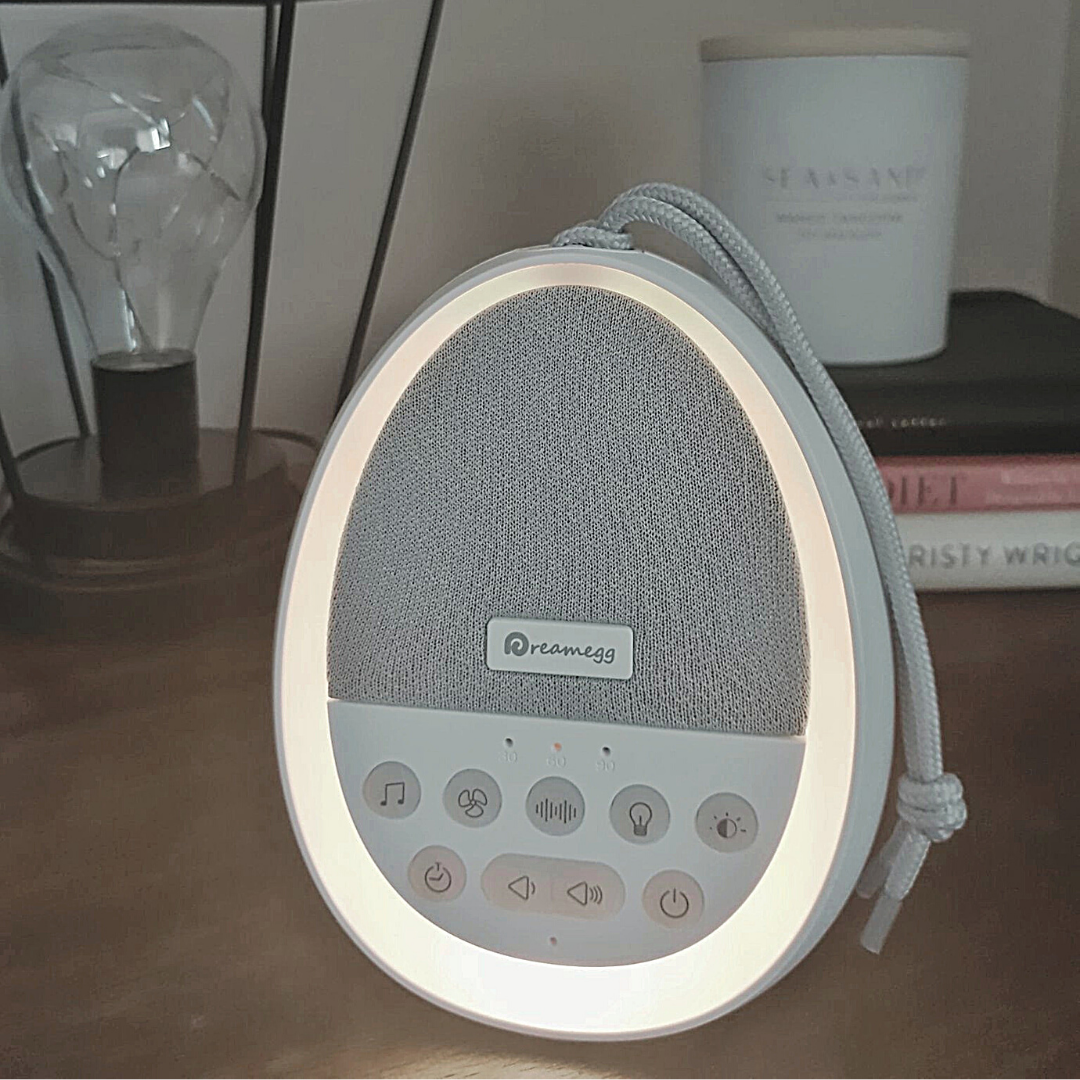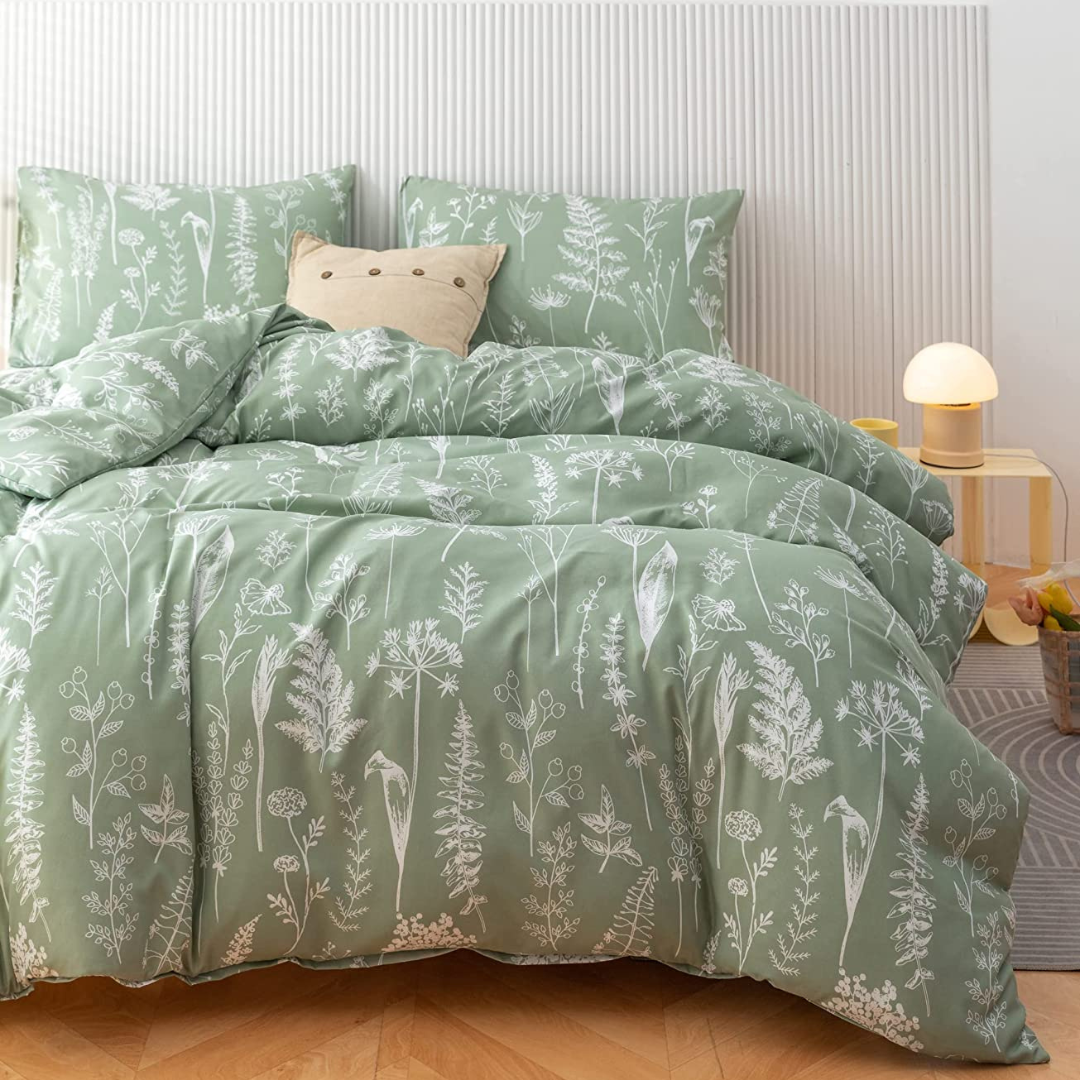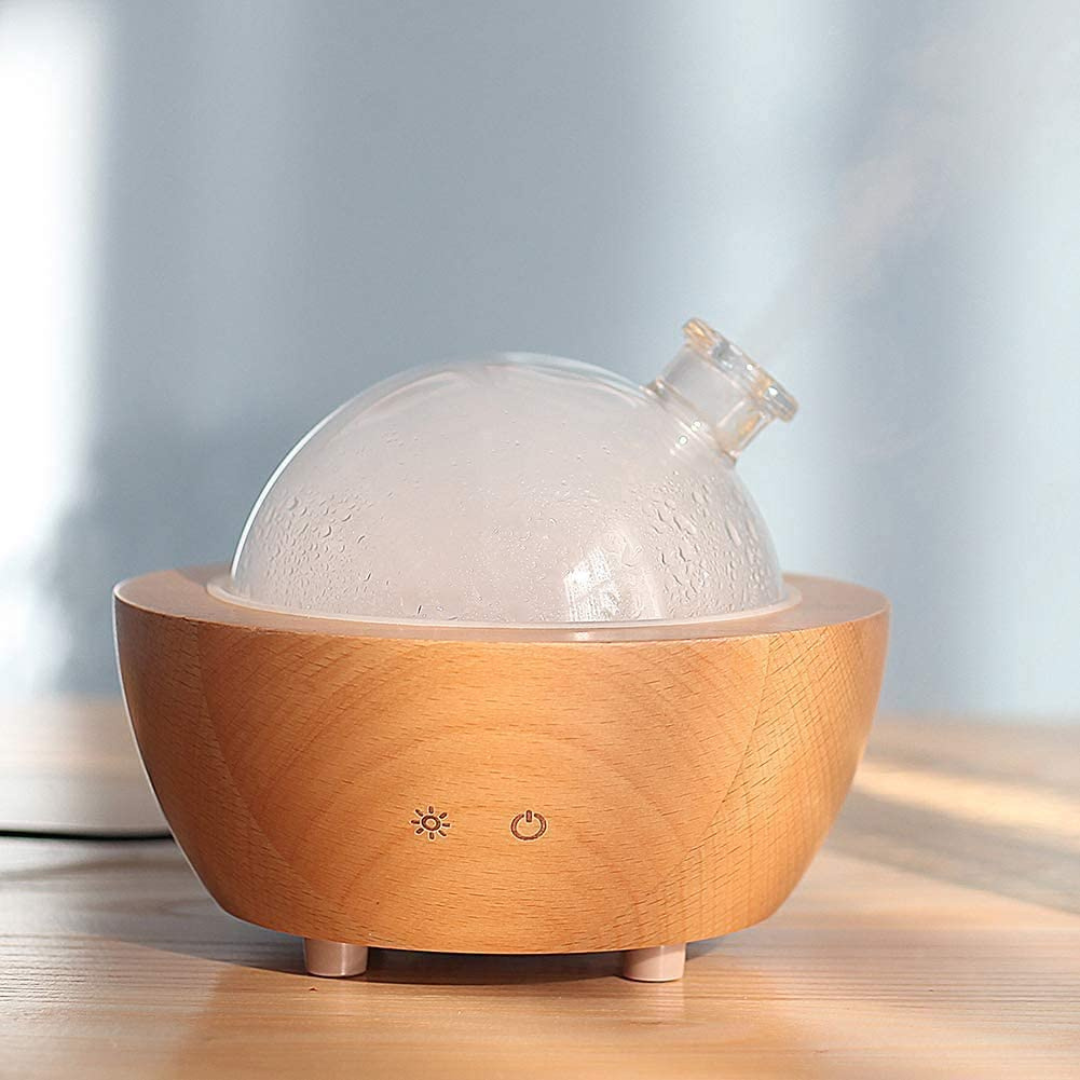|
|As a therapist, one of the most common concerns that clients have brought up during therapy sessions has been problems associated with anxiety. From experiencing the worry and self-doubts that surface following a relationship breakdown, to the intense and demoralizing physical symptoms associated with a panic attack, anxiety is the most common mental health disorder affecting more than 40 million Americans.
Given the prevalence, it can be important to have an understanding of the symptoms of anxiety in case anxiety become problematic for yourself or someone you know. This article will explore four of the most common types of anxiety disorders: Generalized Anxiety Disorder (GAD), Panic Disorder, Social Anxiety Disorder, and Phobia Disorder.
Please note - it can be common to identify with some of the information that will be outlined in this article because we all experience anxiety. If you feel as though the symptoms you are experiencing could relate to a mental health disorder, it's important to have a professional assessment through a doctor, rather than relying on self-diagnosis. Likewise, if you are worried about a loved one who may be experiencing an undiagnosed anxiety disorder, encourage them to seek support from a medical professional - anxiety disorders are treatable.
1. Generalized Anxiety Disorder (GAD): According to the Anxiety and Depression Association of America (ADAA), Generalized Anxiety Disorder is characterized by persistent and excessive worry about a range of concerns that may or may not warrant having these worries. An individual who experiences GAD has difficulty controlling their worried minds and, as a result, may be impacted in mild ways like becoming irritated, or experience debilitating impacts and may not even be able to perform routine daily tasks. Although most people experience some level of anxiety throughout their day, a person diagnosed with GAD must meet the following criteria and experience a minimum of 3 of the following symptoms for most days over a 6 month period to be diagnosed by a doctor or mental health professional with this type of disorder: Diagnostic criteria of GAD according to the DSM-V:
2. Panic Disorder: Experiencing a panic attack, described by the Mayo Clinic as 'a sudden episode of intense fear that triggers physical reactions when there is no real danger or apparent cause', is not altogether uncommon. However, a person who experiences recurrent an unexpected panic attacks who are gripped with fear of another panic attack, may be diagnosed with a panic disorder. Panic attacks can be a very scary experience, and the despite the cause which could be biological, based on previous trauma or experiences, or for not apparent reason at all, panic disorder is highly treatable. Characteristic symptoms of a panic disorder can include:
Read about the criteria needed to meet diagnostic criteria for diagnosis of Panic Disorder here. Let us take a pause here and consider for a moment if you have experienced anxiety that may be diagnosed by a professional as a disorder, or if you have anxiety symptoms that are impacting on your daily life. If so, seek assistance from a doctor or mental health professional so that you can have support and find out available treatment options. Also, keep in mind other options that can help support calm and sleep which can ease anxiety symptoms. Kava Guides can help you discover the traditional benefits of kava that can increase calmness during meditation, to promote healthy sleep, and to ease stress and tension in your every day life. MENTAL HEALTH RESOURCE VAULTGreat!Check your email for instructions on how to access the Members Only Resource Vault. 3. Social Anxiety Disorder: Have you ever stood on a stage or in front of a classroom, prepared to make a speech or recite an assignment, and all of sudden your knees start to shake, your hands become faucets, and your mind is all of a sudden completely blank? This is a reaction that many people have when they are put into a situation of possible evaluation or judgement from others that could lead to an embarrassing and highly unpleasant experience. Having social anxiety disorder is very similar to this 'stage fright' experience, except it happens during most (or all) social situations, and is chronic, rather than happening only some of the time. It is very different than just being 'shy'. Some of the typical symptoms include:
This intense fear of interacting or being present in social situations can cause huge detrimental impacts on a persons life, including being unable to leave home, attend work, experience relationships or friendships, and cause negative self-esteem and feelings of low self-worth. Physical symptoms of anxiety can be present as well including muscle tension, upset stomach or diarrhea. Interested in learning more about social anxiety disorder and new research into available treatments? Check out the podcast hosted by the ADAA in which Stefan Hoffman describes this disorder and how an antibiotic could help treat social anxiety disorder through cognitive enhancement when used in conjunction with therapy. Podcast: Stefan Hoffman, PhD - New Research in the Treatment of Social Anxiety Disorder 4. Phobia Disorder: You may have heard of different types of phobias, like one of the most common phobias of being afraid of spiders. Most people have experienced the sensation of having this intense, uncontrollable experience of fear when they see a daddy-long legs (or something more sinister like a black-widow spider) scamper across their living room floor, but most people don't actively look under the couch or in dark corners, or change their daily routine, worrying about running into this 8-legged creature at any moment. A person who is diagnosed with a phobia disorder experiences the same intense fear of an object or situation, but actively changes the way they live their lives to avoid this fear stimulus, even if the fear object (spider) or situation is not present. This pre-emptive fear can cause difficulties in living a regular life from the debilitating fear that can accompany a panic disorder. A person can also develop a specific type of anxiety disorders such as agoraphobia (fear or avoidance of being in certain situations, including public spaces). Some of the characteristics of phobia disorders can include:
Mental health research into anxiety:Research into anxiety has led to the innovative and quantitiative concept that can help to identify and treat anxiety disorders through personalized medicine at a reduced cost. If you're interested in learning more, check out the TED Talk in which Aneysha Bhat discusses the importance of reducing the stigma of mental health disorders by increasing the accessibly of diagnosis and treatment.
More articles in the anxiety series:
References: cmha.ca, mayoclinic.org, adaa.org, anxietycanada.ca, medscape.com
Some links on this page are embedded with affiliate links that I may receive compensation from at no additional cost to you. Check out the health & wellness resources on the store.
14 Comments
1/18/2017 06:06:21 pm
Such good and important information. Thank you for posting!
Reply
3/5/2020 01:27:09 pm
Hi Sue, thank you for your comment. I'm glad you found this article insightful. I post weekly so be sure to check back for new content. :)
Reply
3/5/2020 01:27:54 pm
Hi Emma, thanks for your comment. TED Talks have such insightful information, I always need to share them. :)
Reply
5/21/2018 11:08:53 am
Great information that could help someone possibly pinpoint what type of anxiety they may be struggling with and reach out for help.
Reply
3/5/2020 01:29:03 pm
It can be tough to know what's happening when experiencing anxiety, so having a better understanding of anxiety can be helpful for sure. Thanks for your comment, Keri!
Reply
5/21/2018 05:09:47 pm
I just thought there was anxiety . The general term . I am glad that I found this article because it outlines the different types of anxiety . I can not believe that there is still a stigma attached to mental disorders such as anxiety as these are simple symptoms that we can all experience from time to time . I think once persons such as yourself keep sharing your knowledge the stigma will lessen ,
Reply
3/5/2020 01:30:35 pm
Anxiety can be quite a complex mental health concern.. and for some people, its actually helpful to feel a bit anxious (like for example, when you are wanting to perform well on a test). I'm glad that this article was informative for you!
Reply
Kelli
5/21/2018 09:13:46 pm
Thank you for breaking this up into well informed chunks that really helped me understand the different types of anxiety disorders. I know someone who believes they have a social anxiety even with family members. I want to understand more so that maybe I can be more empathetic and, perhaps, ease her discomfort.
Reply
3/5/2020 01:31:22 pm
You're very welcome! I'm glad it was helpful to learn more about the different types of anxiety disorders.
Reply
5/21/2018 11:45:02 pm
Thanks for sharing. Really informative. I’m a mental health first aider and I’m training to be a life coach so I know people will really benefit from this post
Reply
3/5/2020 01:32:25 pm
Thank you for sharing the post with others who could benefit. I post weekly articles so be sure to check back for new content. :)
Reply
Your comment will be posted after it is approved.
Leave a Reply. |
Welcome to the blog!↓ That's me, Heather. :)
MENTAL HEALTH RESOURCE VAULTGreat!Check your email for instructions on how to access the Mental Health Resource Vault. Categories
All
Popular Posts// 25 Positive Mindset Quotes
// Self-Care Bullet Journal Spreads // 7 Ways Your Physical Health is Connected to Your Mental Health |
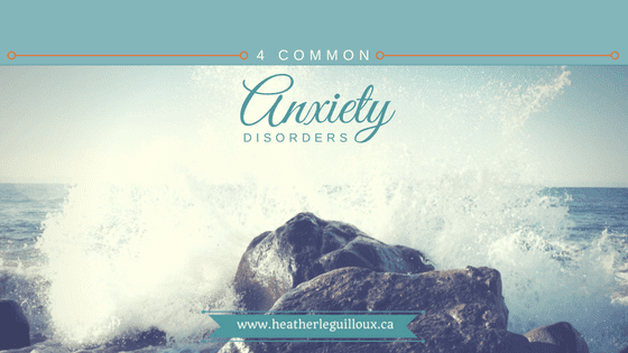

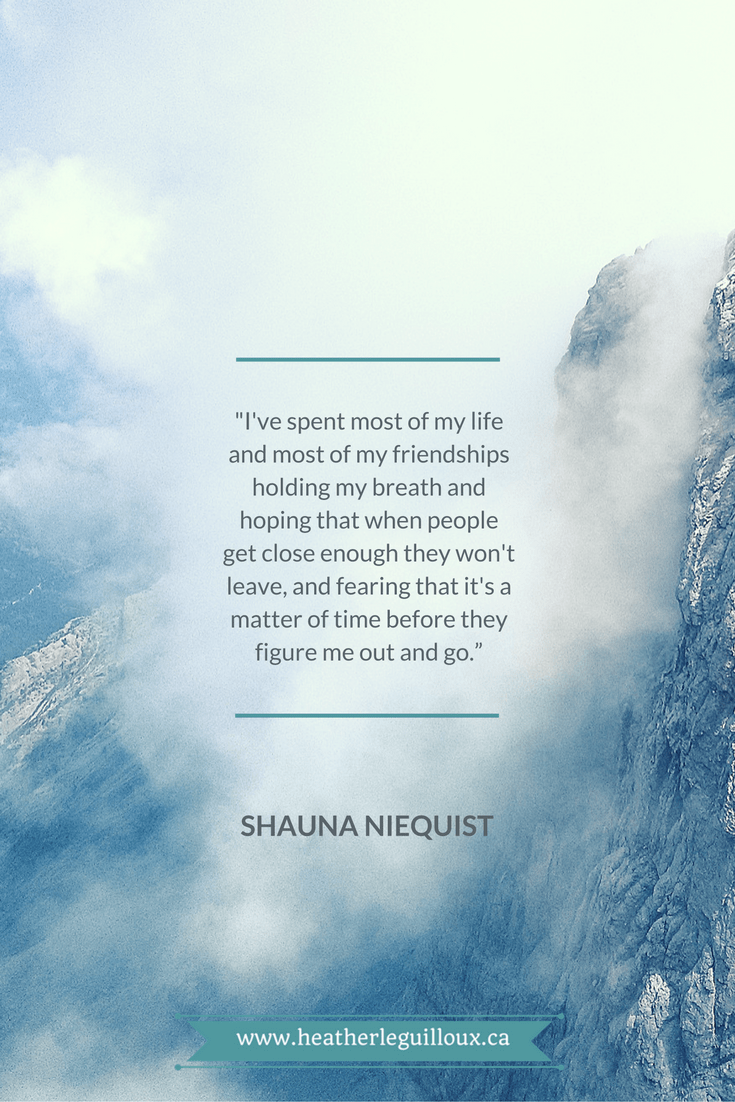
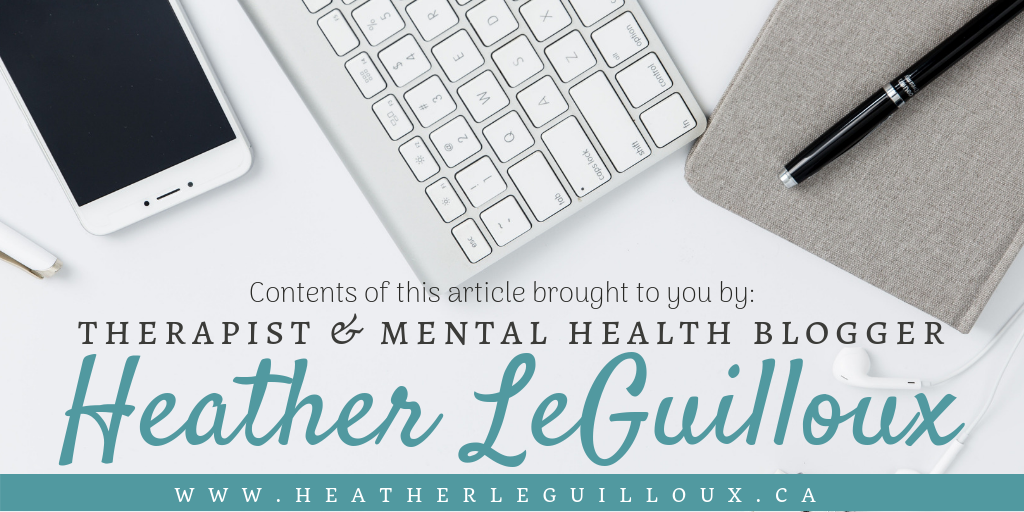
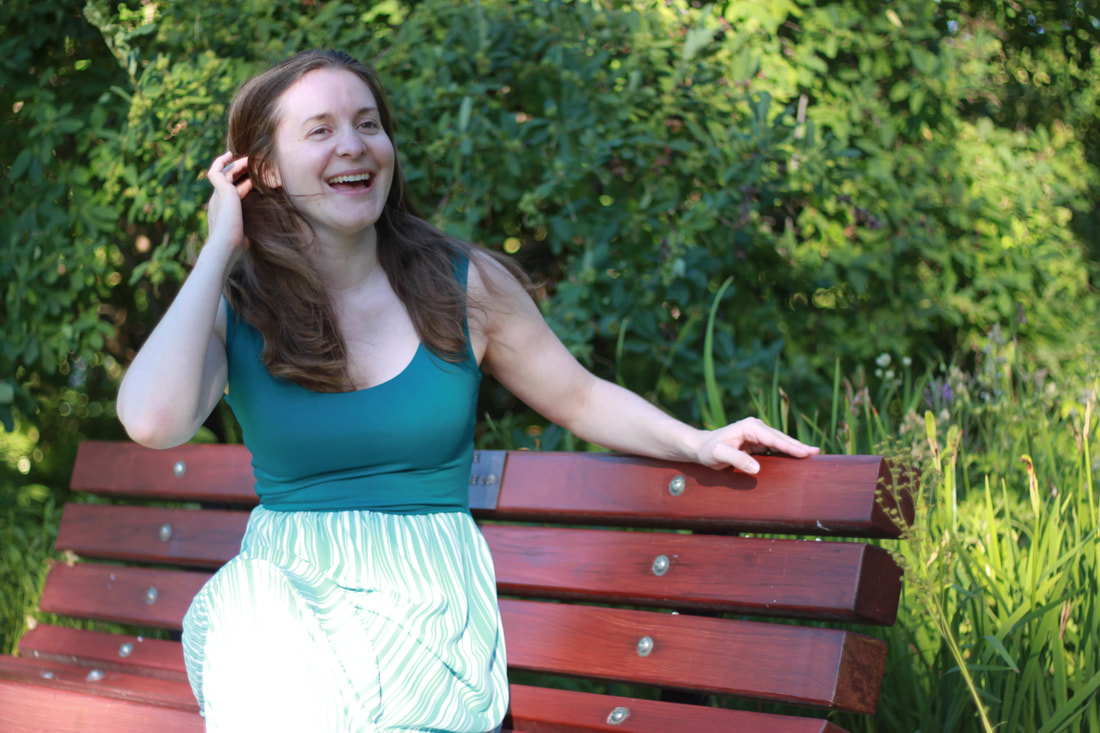
 RSS Feed
RSS Feed











